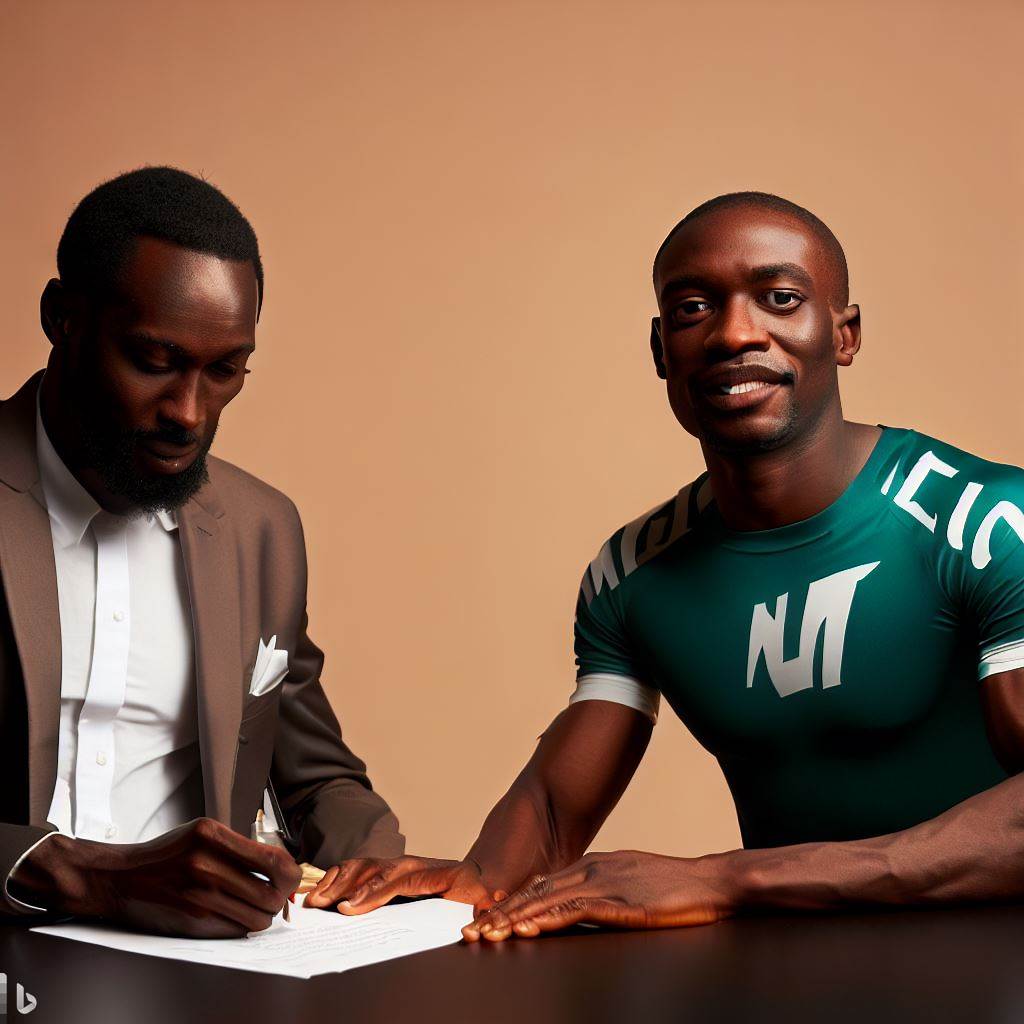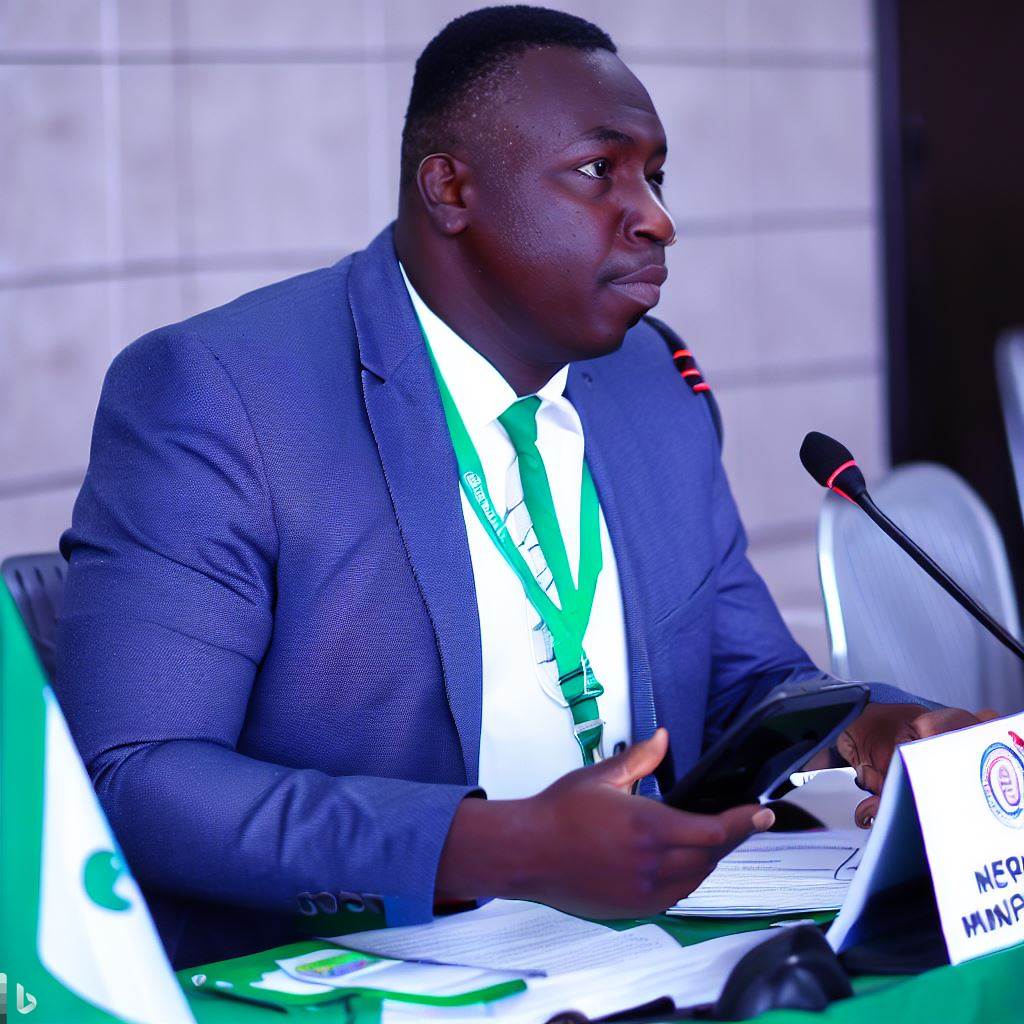Introduction
Sports have always played a significant role in human development, providing essential social and health benefits.
Nigerian professional sports have gained significant popularity and support, contributing to the country’s economic and social development.
The Nigerian government and private organizations recognize the importance of sports infrastructure in promoting and sustaining professional sports.
Quality sports infrastructure can help athletes to train, develop and showcase their skills, provide employment opportunities, and enhance social development.
The purpose of this blog post is to take a close look at the Nigerian professional sports infrastructure, its current state, and the challenges it faces.
Read: Steps to Building a Career in Nigeria’s Sports Field
Nigerian Professional Sports: A Brief Look
Sports play a significant role in Nigeria’s culture and economy. They are also an excellent way to build social connections and drive national unity.
It is no wonder that sports have been a part of the Nigerian way of life for many decades.
A wide variety of sports are practiced and played throughout the country, reflecting its diverse cultures and traditions. Here’s a closer look at Nigerian professional sports infrastructure.
Popular sports in Nigeria
Soccer, also known as football, is Nigeria’s most popular sport. It is followed by basketball, track and field, and boxing. Other traditional sports include wrestling, stick fighting, and canoe racing.
Sports organizations in Nigeria
The Nigeria Sports Federation oversees the development of all sports in Nigeria. It is responsible for organizing and conducting competitions that lead to the selection of national teams.
There are also several sports associations, including the Nigeria Football Association, Nigeria Olympic Committee, and Nigeria Basketball Federation, among others.
Major sports events in Nigeria
Nigeria has hosted several major sports events, including the All Africa Games, African Cup of Nations, and FIFA U-17 World Cup.
The country has also produced numerous world-class athletes, including Segun Odegbami, Chioma Ajunwa, and Yusuf Alli, among many others.
Nigeria’s sports infrastructure lags behind other countries due to limited funding and resources, often redirected to politics, education, and healthcare.
This has led to inadequate facilities and a lack of modern sports equipment, which has significantly impacted the country’s ability to develop and excel in sports.
In recent years, the Nigerian government has made strides in improving sports infrastructure by investing in new facilities and equipment.
Several stadiums have been built or renovated, including the Abuja National Stadium, Teslim Balogun Stadium, and the Godswill Akpabio International Stadium.
Additionally, the government has also launched initiatives to develop youth sports and increase participation in physical activities.
In essence, sports play an essential role in Nigeria’s culture, and developing the professional sports infrastructure is crucial to achieving greater success in national and international competitions.
While progress has been made, there is still much to do to improve Nigeria’s sports facilities significantly.
With increased investment and resources, there is no doubt that Nigerian sports can reach new heights and produce world-class athletes.
Read: Nigeria’s Athletics Professions: Potential and Pitfalls
Sports Infrastructure in Nigeria
When it comes to professional sports in Nigeria, having proper sports infrastructure is crucial.
Not only does it provide a platform for athletes to train and compete, but it also helps grow the sports industry in the country.
However, the state of sports infrastructure in Nigeria leaves a lot to be desired. Here is a closer look at the current situation:
The State of Sports Infrastructure in Nigeria
- Nigeria has a long history of producing talented athletes across various sports
- However, the lack of proper sports infrastructure has hindered their progress
- Most sports facilities in Nigeria are outdated and in disrepair
- There are not enough training facilities for athletes to utilize
- Many stadiums lack basic amenities such as functioning toilets and electricity
Overall, the current state of sports infrastructure in Nigeria is not conducive to developing world-class athletes.
Issues with Sports Infrastructure in Nigeria
- One major issue is the lack of funding for sports infrastructure
- Corruption in the sports sector has also contributed to the inadequate infrastructure
- There is a lack of maintenance culture which leads to facilities falling into disrepair
- Over-reliance on government funding and neglect of the private sector
- Inefficient allocation of resources leading to poorly planned and executed infrastructure projects
These issues have prevented the development of a sustainable sports infrastructure in Nigeria, which is necessary for the growth of professional sports in the country.
Importance of Sports Infrastructure in Professional Sports
- Proper sports infrastructure provides athletes with the necessary facilities to train at a high level
- Good infrastructure attracts top talent and creates opportunities for athletes to compete at a high level
- It also generates revenue for the sports sector through hosting events and competitions
- Improved infrastructure can lead to more investment from the private sector and foster partnerships with international organizations
- Ultimately, a strong sports infrastructure is crucial for building a sustainable and successful sports industry in Nigeria.
In addition, sports infrastructure in Nigeria is in dire need of improvement. There are many issues that need to be addressed, including funding, corruption, and lack of maintenance.
However, improving sports infrastructure is essential for the growth and development of professional sports in the country.
Nigeria has the potential to produce world-class athletes, but without proper infrastructure, that potential will remain untapped.
Read: Breaking Down Nigeria’s Athletics Training Systems
Analysis of Nigerian Sports Infrastructure
Examining the current state of sports infrastructure in Nigeria
- Stadiums and arenas: Nigeria has a total of about 43 stadiums and arenas spread across the country. However, most of them are in a dilapidated state, with inadequate maintenance and obsolete technology.
Some of the notable stadiums include the National Stadium Surulere Lagos, Teslim Balogun Stadium Lagos, Godswill Akpabio International Stadium Akwa Ibom, and Abuja National Stadium Abuja.
These stadiums have hosted various national, continental, and international events, but they lack basic facilities such as scoreboards, public address systems, and modern changing rooms. - Training facilities: In Nigeria, there are still a limited number of professional sports training facilities. Although there are some high-performance centers and sports academies, they are not well equipped due to inadequate funding.
Few facilities have the necessary equipment to train elite athletes across all sports. The poor state of this infrastructure has hindered the country’s ability to develop world-class athletes. - Other supporting infrastructure: Sports infrastructure is not limited to stadiums and training facilities. There are other supporting infrastructures like rehabilitation centers, sports science labs, data analysis tools, and medical facilities tailored to meet the needs of athletes.
Unfortunately, the country lacks the basic infrastructure required to support the optimal performance of athletes.
This is often the case despite the significant investment made in infrastructure development by government agencies and private companies.
Comparing Nigerian sports infrastructure to other African countries
Compared to other African countries, Nigeria lags behind in sports infrastructure development.
Countries like South Africa, Egypt, Ghana, Kenya, and Morocco have invested in sports infrastructure, both in terms of quality and quantity.
For instance, South Africa hosted the 2010 FIFA World Cup which was a success due, in part, to its modern infrastructure.
Egypt has an extensive network of sports facilities which helped in the development of high-level athletes such as Mohammed Salah.
Ghana is known for its excellent football training centers and facilities. Kenya has a high-altitude training center which is conducive for elite endurance training.
Morocco, on the other hand, has a world-class athletic-focused performance center, where athletes train with modern equipment, professional trainers, and scientists.
The impact of sports infrastructure on the success of Nigerian professional sports
The state of Nigerian sports infrastructure has been a significant challenge to the success of Nigerian professional athletes.
The insufficient infrastructure contributes to the poor quality of sports events and results.
Athletes most times are unable to reach their full potential due to inadequate training facilities, which leads to missed opportunities and mediocrity.
Without adequate investment in infrastructure development, Nigeria will continue to decline as a sports powerhouse in Africa.
Improved infrastructure will aid the country’s efforts in hosting more high-profile sporting events, creating employment opportunities, and attracting investment.
Good sports infrastructure is essential for developing world-class athletes and sports events.
Nigeria’s struggle to keep up with other African countries in sports infrastructure development is a significant setback to the growth of professional sports and athletics.
The government and private organizations must work together to improve sports infrastructure and facilities, and this will require significant investment.
It is only by investing in modern, adequately maintained infrastructure that Nigeria can compete with other African nations and take its place amongst the world’s leading sporting nations.

Challenges Facing Nigerian Sports Infrastructure Development
Nigeria has the potential to be a sports powerhouse but faces huge challenges in developing its sports infrastructure. These challenges include:
Funding
One of the major challenges facing sports infrastructure development in Nigeria is lack of funding.
Sports facilities in Nigeria are mostly outdated and require renovation. Few existing facilities are poorly maintained due to limited government funding and lack of private investment.
Without adequate funding, it is impossible to develop the sports infrastructure needed to produce world-class athletes.
Maintenance of Facilities
Even where facilities have been constructed, they are often poorly maintained. Maintenance costs are high and require consistent funding, which is not always available.
Lack of maintenance has led to the degradation of existing facilities, making it difficult to host events.
It also discourages private investment as potential sponsors and partners do not want to associate themselves with poorly maintained facilities.
Corruption
Is another major challenge facing sports infrastructure development in Nigeria.
Corruption in the award of contracts for the construction of facilities has led to poor quality facilities that are not fit for purpose.
Sports officials often siphon off funds meant for sports development and infrastructure, thus compounding the funding problem.
At all levels of sports administration in Nigeria undermines the development of sports infrastructure, making it difficult to attract the required funding and investment.
Solutions and Recommendations
To address these challenges and improve sports infrastructure in Nigeria, the following solutions and recommendations have been suggested:
- Increased Funding: The Nigerian government should increase funding for sports infrastructure development. This will enable the development of new facilities and maintenance of existing ones.
- Public-Private Partnerships: The government should partner with the private sector to develop sports infrastructure. This will attract private investment and ensure that facilities are well-maintained.
- Tighten Corruption Laws: The Nigerian government should strengthen anti-corruption laws and punish anyone found stealing from sports development and infrastructure funds.
- Improve Governance: The Nigerian Sports Commission and other sports governing bodies must be overhauled to improve their governance structures. This will help to ensure transparency and accountability in sports administration.
- Prioritize Maintenance: The maintenance of facilities should be prioritized to ensure that they remain in good condition. The government should establish a maintenance fund to cover the cost of repairs and maintenance.
- Training and Development: The government should invest in training and development for sports administrators. This will help to build their capacity and ensure that they have the necessary skills to develop and manage sports infrastructure.
Therefore, Nigeria has enormous potential to be a sports powerhouse, but this requires significant investment in sports infrastructure development.
Increased funding, public-private partnerships, anti-corruption measures, improved governance, prioritized maintenance, and training overcome sports infrastructure challenges in Nigeria.
Read: How to Succeed in the Nigerian Professional Sports Scene
Gain More Insights: Nigeria’s Top Sports Agents: Success Stories to Inspire
Conclusion
Athletic infrastructure is a vital component of a successful, competitive sports environment.
In Nigeria, the state of the professional sports infrastructure has been subpar, with limited facilities and inadequate equipment, resulting in sparse local talent and inadequate representation at international competitions.
It is essential to invest in the development of sports infrastructure in Nigeria to promote the growth of professional sports, encourage participation, foster athletic achievement, and establish a sports industry that can create jobs, enhance health, and stimulate economic development.
Nigeria’s government and private sector must consider the long-term effects and benefits of investing in sports infrastructure, including sponsoring treatment, scholarship opportunities, and lucrative sponsorships that may benefit everyone involved in sports.
Overall, the development of sports infrastructure is a valuable investment. It serves as a foundation for athletic advancement, promotes the sports culture, attracts economic and social benefits and provides employment opportunities.
It is now the responsibility of the Nigeria government and private sector to make that investment in the continued development of Nigeria’s sports infrastructure.
We call on all stakeholders in Nigerian sports, including the Government of Nigeria and the private sector, to create policies and plans that will encourage continued investment in sports infrastructure to enhance Nigeria’s position as a leading sports nation.
It is time to build the facilities and offer opportunities that will enable the athletic capacity of our people, improve our reputation in international competitions, and bring economic growth to the country through the expanding sports industry.




